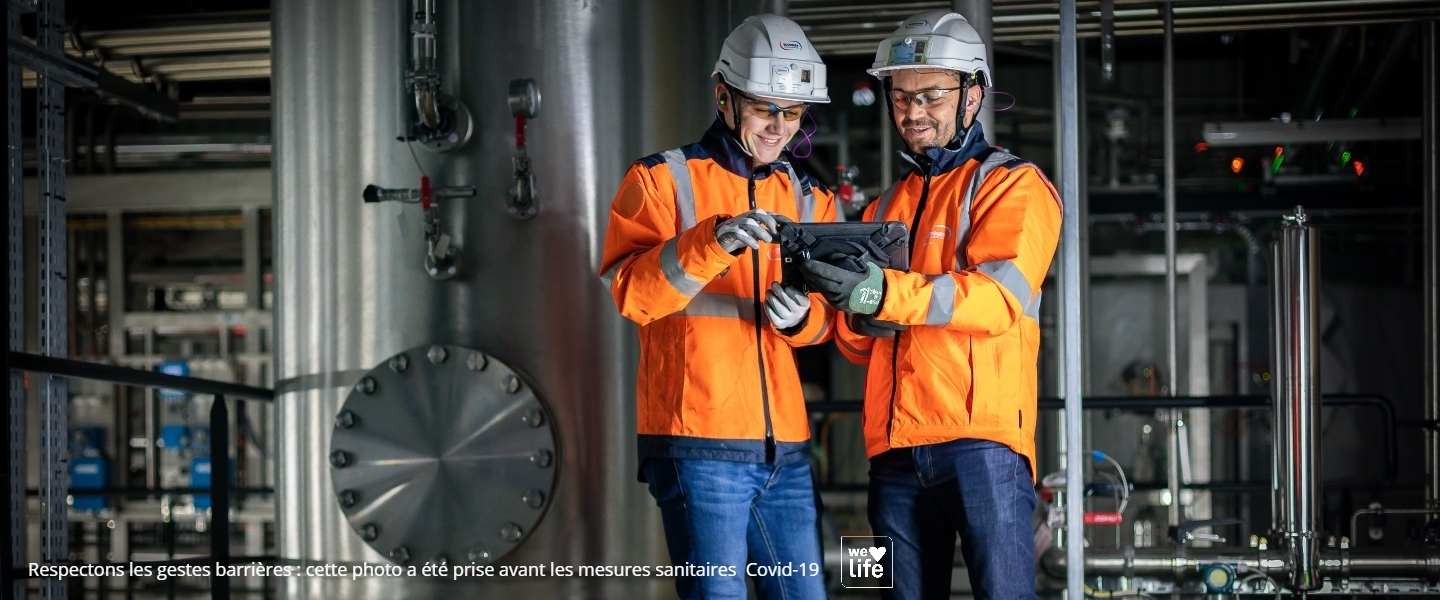Table des matières
ToggleImpact of Industry 4.0 on the Energy Sector
Industry 4.0 is radically transforming the energy sector by integrating advanced technologies such as the Internet of Things (IoT), artificial intelligence (AI), and blockchain. These innovations enhance energy efficiency and the management of renewable resources.
IoT plays a crucial role by enabling real-time monitoring of energy infrastructures. Smart sensors collect and analyze data, facilitating predictive maintenance and reducing operational costs. This proactive approach helps prevent outages and optimize energy distribution.
AI contributes to optimizing energy networks by forecasting demand and adjusting supply accordingly. AI-powered systems can analyze vast amounts of data to provide automated and efficient solutions, thus maximizing the performance and reliability of networks.
The use of blockchain in the energy sector ensures increased transparency and better transaction security. This technology allows tracking the origins of energy, ensuring ethical and responsible use of resources. Moreover, it facilitates transactions between producers and consumers without the need for intermediaries.
The integration of these technologies in the energy sector brings several advantages:
- Reduction of operational costs
- Improvement of energy efficiency
- Optimization of predictive maintenance
- Increase in transparency and transaction security
The collaboration between industrial stakeholders and tech startups also helps accelerate the adoption of innovations stemming from Industry 4.0. Partnerships and investments in research and development catalyze significant advancements, positioning the energy sector as a leader in digital transformation.
Improvement of Energy Efficiency
Industry 4.0 profoundly transforms the energy sector by integrating advanced technologies such as the Internet of Things (IoT), artificial intelligence, and robotics. These innovations optimize processes and reduce costs.
The interconnection of systems and real-time data analysis enhance the management of energy networks. Smart sensors monitor infrastructures and predict failures before they occur, thus ensuring improved service continuity.
Thanks to Industry 4.0, energy efficiency is experiencing significant progress. Machine learning algorithms identify consumption patterns and automatically adjust resources.
- Reduction of energy losses
- Optimization of production
- Proactive maintenance management
Technologies of Industry 4.0 also promote the adoption of renewable energies. Intelligent systems integrate renewable energy sources seamlessly, based on demand and weather conditions. This provides increased flexibility and better grid stability.
Companies in the energy sector must invest in these technologies to remain competitive. Continuous training and participation in specialized conferences are crucial to stay updated on the latest technological advancements.
Optimization of Resource Management
Industry 4.0 transforms the energy sector by integrating cutting-edge technologies to optimize production and distribution. Smart equipment, advanced sensors, and sophisticated algorithms are now used to improve energy efficiency and reduce costs.
The impact of Industry 4.0 on this sector is immense. Through digitization, it is possible to monitor energy infrastructures in real-time, anticipate failures, and optimize resource usage. Energy management systems based on IoT technology allow for rapid and accurate responses to fluctuations in demand.
The optimization of resource management is one of the main advantages brought by Industry 4.0. Here are some concrete examples:
- Predictive analysis: Using historical data to anticipate consumption variations and adjust production accordingly.
- Proactive maintenance: Identifying signs of malfunction before they lead to failures, thus reducing service interruptions.
- Intelligent network management: Implementing smart distribution networks that can automatically adapt to energy needs.
By integrating these innovations, stakeholders in the energy sector can not only enhance their competitiveness but also contribute significantly to the energy transition and the reduction of carbon footprints.





